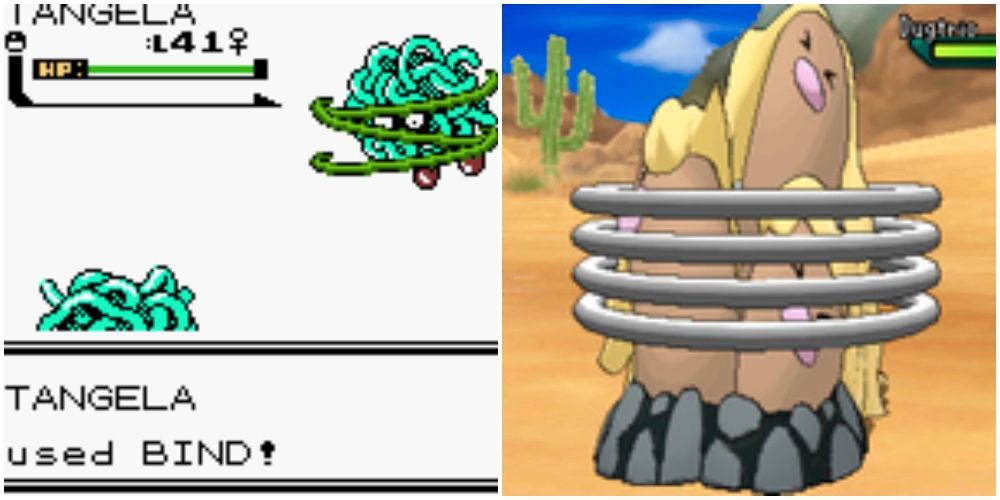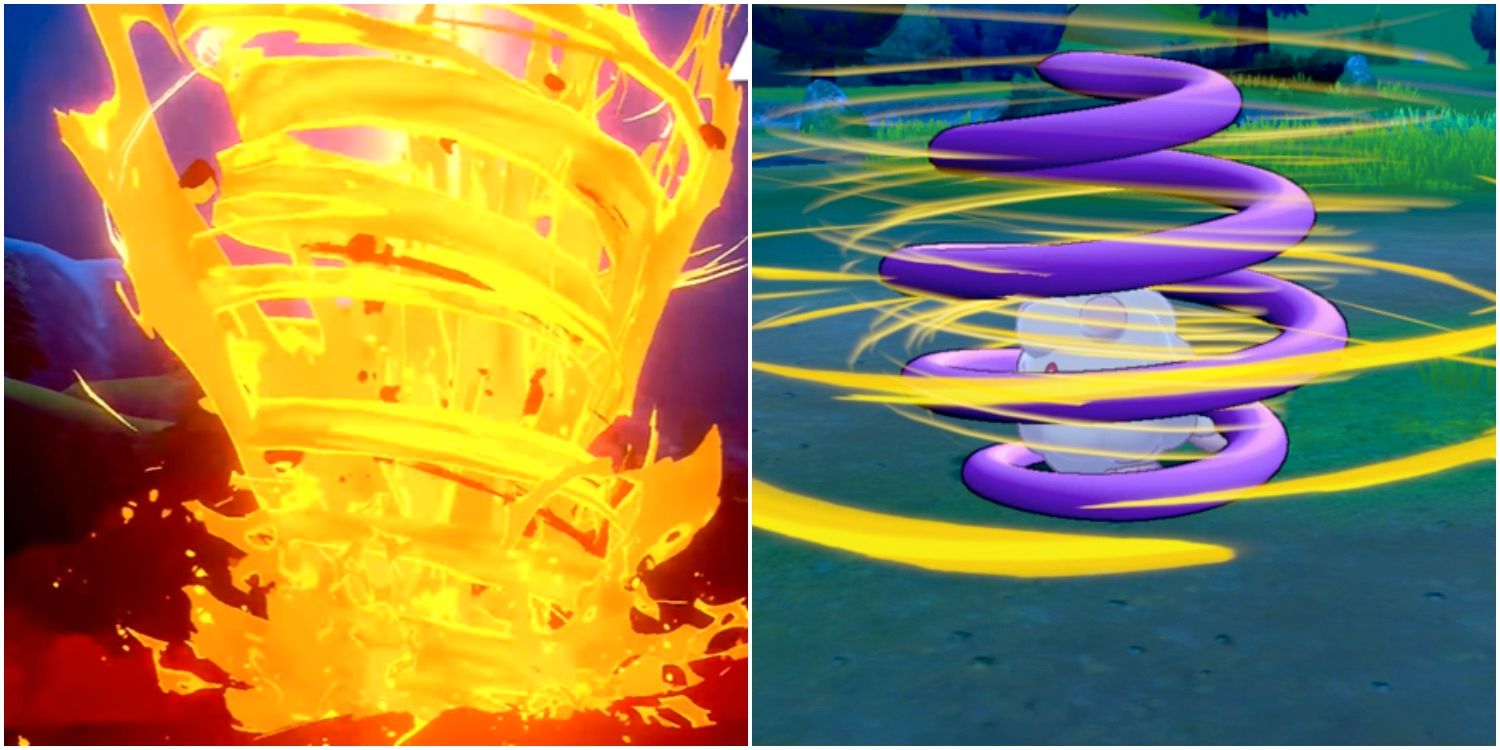Quick Links
- The Bound Status Condition Throughout The Generations Of Main Series Pokemon Games
- All Of The Moves That Inflict The Bound Status Condition In Main Series Pokemon Games
Being trapped is never a good feeling, especially if it happens on the battlefield. When things are looking dicey for one's pocket monster ally in Pokemon Sword & Shield, the first course of action is to switch them out of battle, however, there are some moves in the franchise that can prevent a retreat of this nature.
RELATED: Pokemon: Everything You Need To Know About Move Priority
Being "Bound" is a minor status condition in the Pokemon games that do not get as much attention as the major ones, such as Poison or Sleep, however, Bound can still be devastating in Pokemon Sword & Shield if a pokemon gets trapped while low on HP or forced to fight against an enemy that they cannot hope to defeat.
The Bound Status Condition Throughout The Generations Of Main Series Pokemon Games

Bound Status Condition In Generation 1 Pokemon Games
At the start of the Pokemon franchise, moves that inflict the Bound status condition can last between 2 to 5 turns, with each outcome possibility determined by set percentages.
| Percentage Chance | Duration Of Effect |
| 37.5% | 2 Turns |
| 37.5% | 3 Turns |
| 12.5% | 4 Turns |
| 12.5% | 5 Turns |
While a binding move will always deal damage upon hitting its target, it will also hurt the foe every turn that it is Bound by a value equal to 1/16th of their maximum HP. In addition, Bound pokemon cannot perform their moves or switch out, making them a sitting duck completely at the mercy of their trapper.
Worse yet, when a pokemon is free from being Bound, it cannot move on the turn that it is freed. This means that if their attacker is faster, they can afflict Bound on the defender once more to maintain total control of the battle. This was a truly broken mechanic that allowed almost any fast pokemon with a binding move to slowly but surely take out any adversary.
Bound Status Condition In Generation 2 Pokemon Games
Mercifully, Bound pokemon are now able to use moves in battle, though still cannot switch out. However, wild pokemon seem to be exempt from the latter mechanic, as Bound wild pokemon can still flee from an encounter. Interestingly, trainers can also flee from wild pokemon if the foe uses a binding move, though only if the player uses a Smoke Ball item. The only method to fully rid oneself of the Bound status condition in battle is to use the move Rapid Spin.
Bound Status Condition In Generation 3 Pokemon Games
If players find themselves going up against a wild pokemon that binds them, the player can still flee if their active pokemon has the ability Run Away and an escaping move, like Teleport, though this only lets players flee and not break the Bound status condition like the move Rapid Spin does.
RELATED: Pokemon Sword & Shield: How To Increase Friendship
Bound Status Condition In Generation 4 Pokemon Games
With the introduction of a couple of held items, how Bound was used in battles changed a bit despite the mechanics remaining the same. Firstly, the item Shed Shell would allow a Bound pokemon to switch out without any penalties. Next, the item Grip Claw automatically makes Bound moves used by the equipped pokemon always last the maximum of 5 turns.
Bound Status Condition In Generation 5 Pokemon Games
Moves that inflict the Bound status condition now always last between 4 to 5 turns under normal circumstances, however, the duration will always be 7 turns now if the user of a binding move is holding the Grip Claw item. Also, Binding Band, which was an item introduced in Generation 5, increases the damage done to Bound targets each turn to 1/8th of their max HP instead of 1/16th.
Bound Status Condition In Generation 6 Pokemon Games
The base damage done each turn by a binding move has been increased to 1/8th of a target's max HP. Pokemon using a binding move that are also holding a Binding Band will now be able to drain their foes of 1/6th of their max HP each turn instead of the new value mentioned above. Additionally, Ghost-type pokemon can no longer be trapped by the effects of a binding move, though will still take damage as normal.
Bound Status Condition In Generation 7 & Generation 8 Pokemon Games
There have been no changes to the Bound status condition since the Generation 6 games.
All Of The Moves That Inflict The Bound Status Condition In Main Series Pokemon Games

| Move Name | Description |
| Bind | A damage-dealing physical move |
| Clamp | A damage-dealing physical move |
| Fire Spin | A damage-dealing special move |
| G-Max Centiferno | Exclusive G-Max move of Gigantamax Centiskorch |
| G-Max Sandblast | Exclusive G-Max move of Gigantamax Sandaconda |
| Infestation | A damage-dealing special move |
| Magma Storm | A damage-dealing special move |
| Sand Tomb | A damage-dealing physical move |
| Snap Trap | A damage-dealing physical move |
| Thunder Cage | A damage-dealing special move |
| Whirlpool | A damage-dealing special move |
| Wrap | A damage-dealing physical move |

